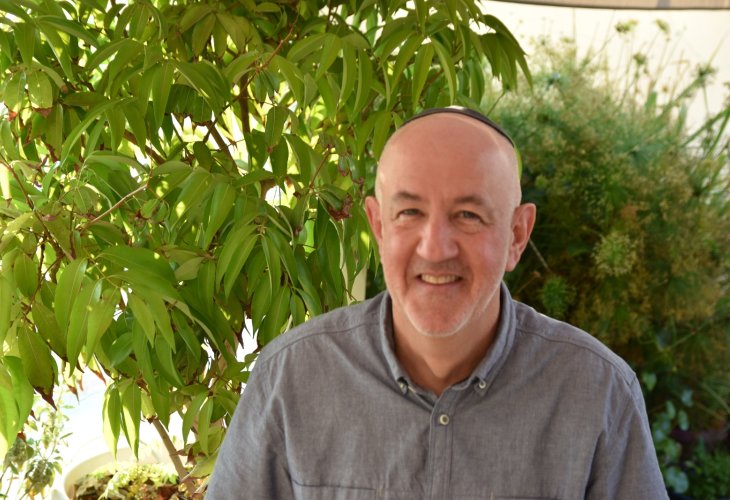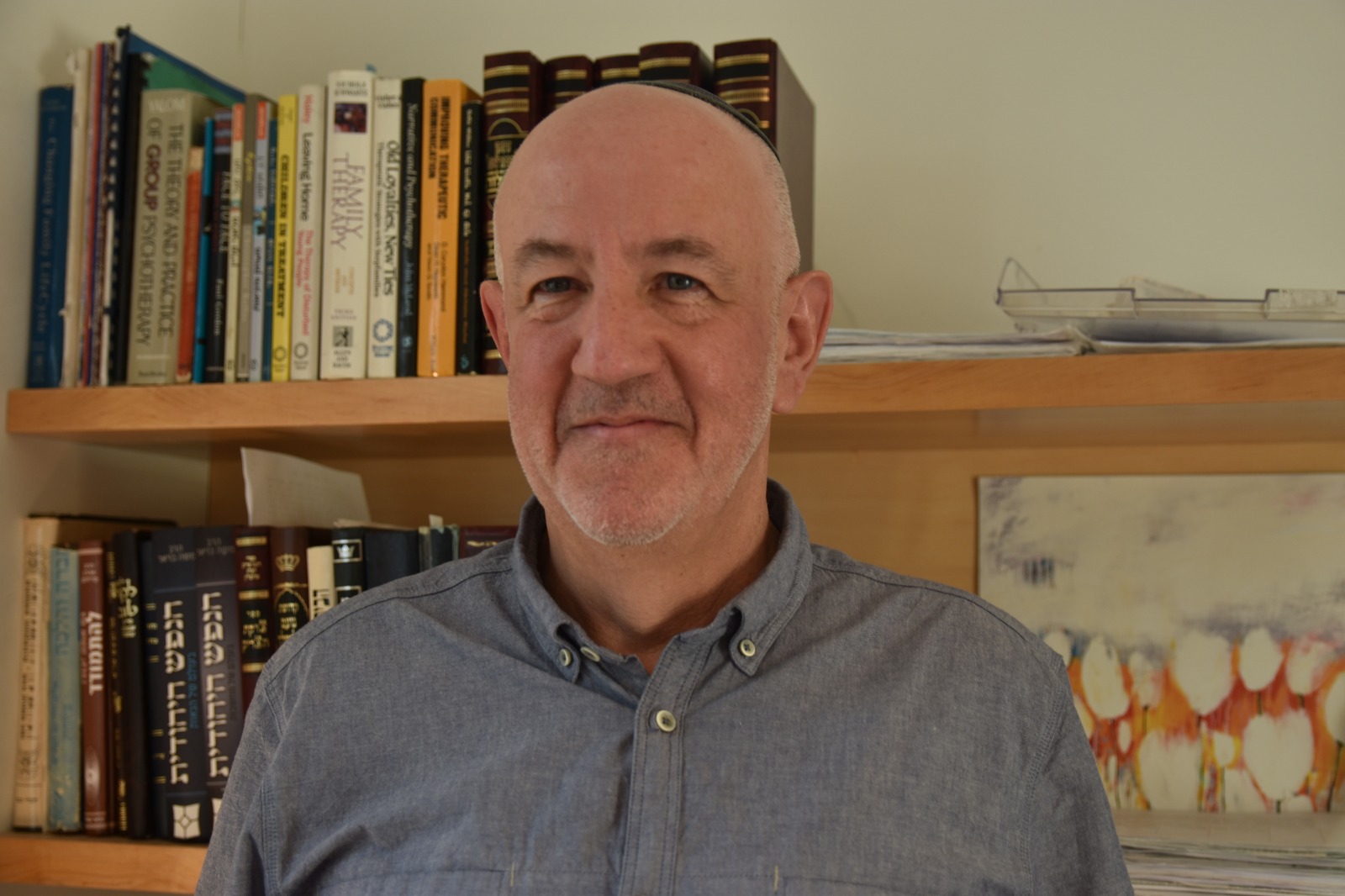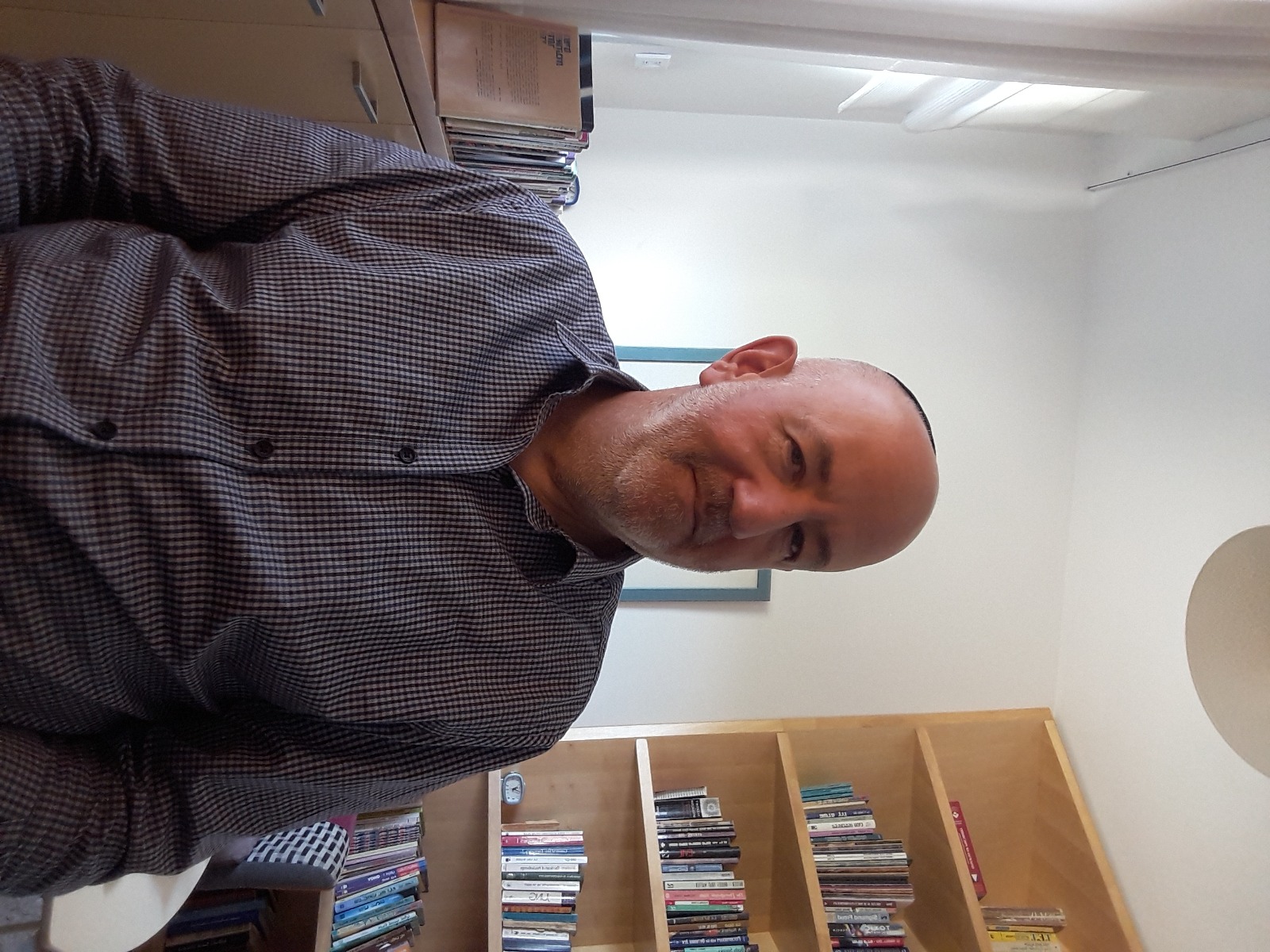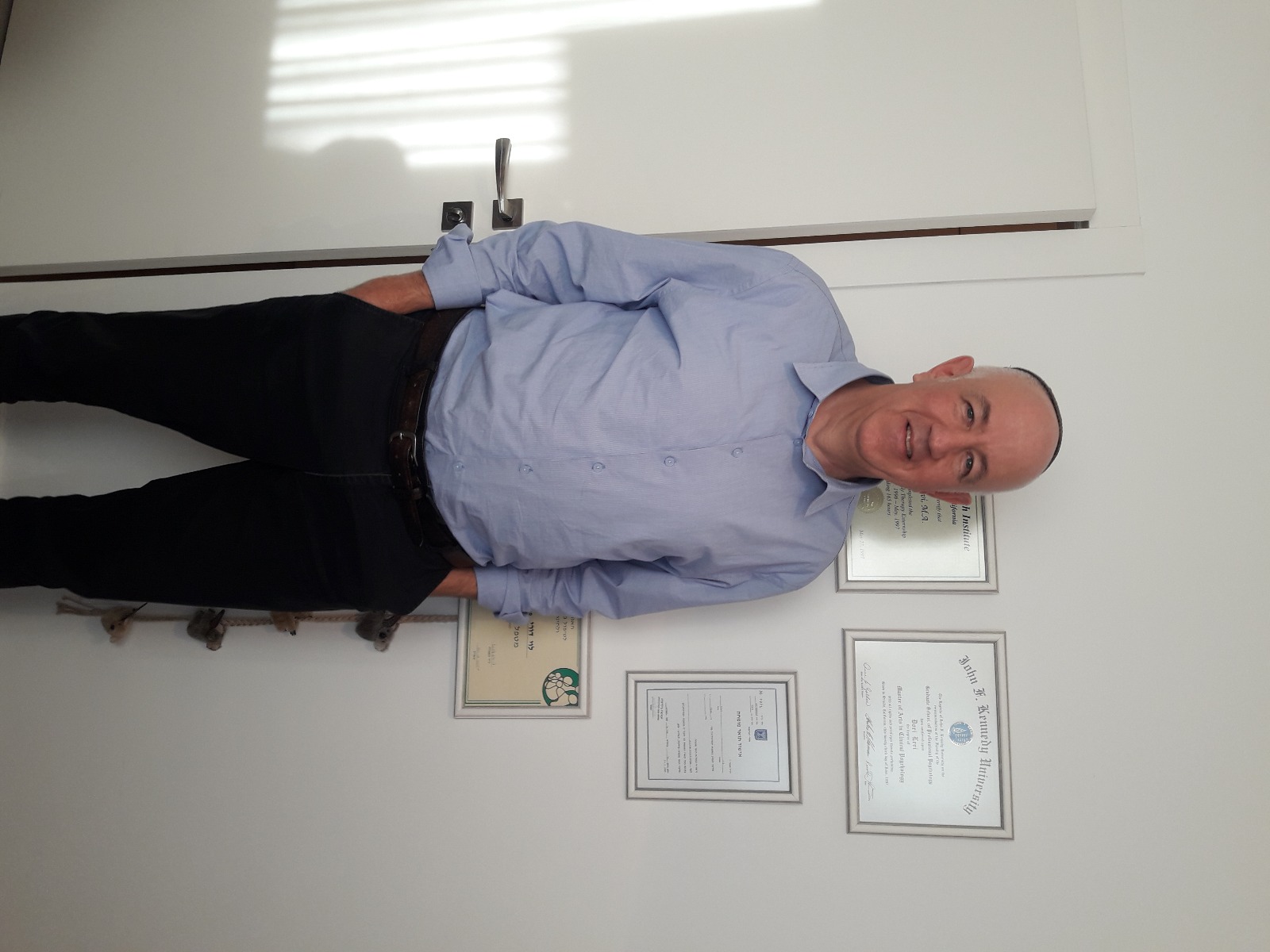From Privilege to Purpose: A Journey Back to Jewish Roots
Dori Levi grew up among Israel's elite in Savion but found himself drawn to Judaism. How did he balance this with psychology studies, and why does he believe psychological methods could endanger the religious person?
 Dori Levi
Dori LeviIn the early '80s, as psychologist Dori Levi began his journey toward Judaism and visited Yeshiva Neve Tzion, he encountered students who, upon hearing of his psychology studies, told him, "It's idolatry!" At the time, this assertion left him uneasy and confused. Decades later, with a yarmulke firmly on his head and a reputation as a respected psychologist, Dori acknowledges that their words held some truth.
"Indeed, psychology can be dangerous and lead to heresy," he explains, "but I don't necessarily think that's a reason to avoid studying it. On the contrary, it's crucial to take the frameworks, training methods, and guidance of psychology and infuse them with Torah values, as observant Jews who know that all psychological theories ultimately originate in the holy Torah."
A Child of Savion
Dori's journey back to Judaism is a captivating story laced with providence. He grew up in central Israel—first in Ramat Gan, then in Ramat Aviv, and finally in Savion. "I was just a regular kid from the north," he shares, "but living in Savion exposed me to an affluent society, virtually without limits. I went to school with the children of various well-known ministers and high-ranking figures. The elite that ruled Israel during the '70s and '80s lived around me, feeling like absolute rulers. Consequently, boundaries were often breached, a sense of power dominated, and it felt like nothing was impossible—nothing could stop us."
One of his strongest memories is from 10th grade, in 1977 when a Torah studies teacher, a Yemenite rabbi, tried to teach Bava Metzia. "I remember many mocked, insulted, harassed, and shouted, especially the class troublemaker sitting next to me. The rabbi responded with surprising calm and told that troublemaker, 'You'll be the first in this class to return to faith.'"
"And he was right. About two years later, some of us began exploring Judaism, mainly out of a sense of emptiness. That friend was indeed the first to fully return to faith, doing so in an extreme manner. He left everything behind, moved to a Jerusalem yeshiva, and when I visited him, I felt I was encountering the truth. Returning home, I told myself everything seemed real and right, but personally, I couldn't abandon everything, disconnect from my familiar world, and change my appearance. It wasn't within my power."

Nevertheless, his interest remained throughout his journey. "You could say I always believed in a Creator, but during those years, my faith began to manifest in practical aspects of my life—I stopped eating indiscriminately, began keeping kosher, tried observing Shabbat, and became familiar with the religious lifestyle."
He also had several friends who participated in the process. "We'd go together in groups to Rothschild Boulevard, climb to the roof where lectures were held, and listen to Rabbi Neiger's and Rabbi Frank's classes. Mostly, we came to listen and argue, but ultimately, we always stayed on our side. It was popular then to be extremely logical and provide proofs, which felt foreign to me. I personally couldn't relate; how could one logically prove Hashem's existence when I felt His presence continually? Maybe it's my nature. During those days, I saw people around me returning to faith, diving straight into the Talmud. I also tried learning at Yeshiva Neve Tzion in Bnei Brak for a while, but simultaneously studied psychology at Bar-Ilan University, which probably didn't allow room for both. I reached a point where I recognized the truth but felt unable to radically change my life because of it. I couldn't fathom the possibility of a more moderate return to faith."
The Torah's Psychology
Dori pursued a bachelor's degree in psychology and then traveled to the United States for further studies. "When I arrived, I was introduced to Chabad and Hasidism in general. For the first time, I began to understand that I could embrace Judaism while also practicing psychology. Those were extraordinary years. In 1989, I visited Brooklyn and was hosted at the home and yeshiva of Rabbi Yaakov Perlow, the Novominsker Rebbe, who served as the president of Agudas Yisroel and chairman of its Council of Torah Sages. During Shabbat, as we were eating, the rabbi suddenly asked me, 'Do you know where depression is mentioned in the Torah? I never expected such an eminent and holy figure to engage me in such a way during Shabbat, and display a deep understanding of Freudian depression processes. Then the rabbi quoted the verse from Genesis: 'Hashem said to Cain, why are you upset, and why has your countenance fallen?' From here," the rabbi continued, "we learn what Freud said—that when you turn your anger inward, your face falls. Inwardly directed anger is the beginning of depression. All this was written in the Torah long before Freud's theories were recognized." The Rebbe, of blessed memory, continued the Shabbat meal, and once again, I felt like I was standing at the entrance to a vast world. Additionally, I visited the Lubavitcher Rebbe, who personally gave me a blessing cup, which I have treasured to this day.
"Afterward, I lived for three years with Chabad emissary Rabbi Press in Berkeley, California, along with other students. I participated in large dinners, met many converts and returnees to Judaism, and even Jewish Marines who fought in Iraq. Since I officially kept Shabbat, I was invited to be a witness at the circumcisions of converts, helped in rituals for the deceased, and engaged in events characteristic of a small Jewish community in the U.S. At the same time, I continued my psychology studies at the university and discovered things that truly amazed me—suddenly, it became evident that much of the knowledge developed over centuries was directly mentioned in Rabbi Schneur Zalman of Liadi's Tanya, as well as in the writings of Rabbi Nachman of Breslov and other Jewish texts. It was truly exciting to discover these connections while studying psychology. During those days, I started realizing we don't need to torment ourselves with foreign theories; everything we need is within Judaism. We must organize this knowledge and present it properly to the public."
Dori returned to Israel as a penitent, and for years, he was close to Rabbi Shach and other rabbis. "It was clear to me that I would continue in psychology," he adds, "I felt Hashem destined this for me, and even when I tried to escape and test my luck in business, signs from heaven showed it wasn't for me. Hashem placed me in this particular role, like a mountain hanging over me."
Jewish Psychology
But precisely because of his position as a psychologist familiar with Torah, Dori voices concerns about religious individuals studying psychology without understanding its risks. "I want to shout at them: 'You have no idea which trap you're falling into. Yes, you can be an Orthodox psychologist, but before studying, you must understand the origins of psychological theories. The psychology taught today in universities worldwide includes many elements from Eastern doctrines. Those who aren't careful about separating grain from chaff might not realize the pit they're falling into and, worst of all, may end up practicing these methods."

Do you think it's essential for a religious person to be treated by an observant psychologist?
"I believe it's necessary and expected. Personally, I was very pained over the years when my guidance was primarily from secular psychologists. Although they were professional and good, I have no complaints against them; if they're based solely on theories developed by individuals far removed from Judaism, there's a potential to harm the soul.
"Here's an example: Fritz Perls, the father of Gestalt therapy, conducted workshops at the Esalen Institute in Big Sur, California, where he advocated that people should integrate both their good and bad aspects into their personalities. He encouraged them to understand that these aspects are part of them. In Judaism, we fundamentally disagree—we understand that the bad traits we harbor are not genuinely part of our essence. Instead, they emanate from the evil inclination, which became intertwined with creation since the sin of the first human. If a person struggles, for instance, with anger, it's crucial to realize that anger is a manifestation of the evil inclination trying to lead them astray, and any believing Torah therapist would echo this sentiment.
"Or another example—there are now many psychologists who encourage drawing upon childhood memories through imagination techniques. It is well-known that Rabbi Yisrael Salanter warned that imagination is a dangerous enemy and must be subdued. Those caught up in memories without understanding the nature of imagination and the schemes of the evil inclination might end up depressed, angry, or sad. And these are just examples; there are hundreds of similar points in psychology, where innocent people might seek treatment from those who do not approach it in the spirit of Judaism. Instead of helping, they might drown their patients in sorrow and difficulty.
"On the other hand, even a therapist wearing a yarmulke doesn't necessarily use religious methods. Sometimes they follow conventional theories and employ standard psychology."
What do you suggest?
"We must develop Charedi scientific literature in all psychology fields according to Torah alone. Today, for instance, Rabbi Moshe Boyar has written several books on the subject, and he isn't the only one. I sincerely hope that in the future, there won't just be books but comprehensive and detailed programs to train Charedi psychologists through an extensive, thorough process based solely on the Torah way. Differentiated from the practices in secular institutions worldwide, in my opinion, within a few years, it will happen."
Safe and Gradual
Throughout Dori's professional journey, he continued his return to Judaism, step by step. "I remember the first Shabbats I observed both before and after returning to Israel," he says. "I secluded myself at home, opened the Sanhedrin tractate, and felt sadness and loneliness. I was so alone and literally reached out to Hashem, saying, 'Hashem, I love You so much, but please help me.' Shortly after, I met my wife, who came from a secular background and accepted the basic commandments. When we married, we decided our home would be observant, and this resolve gave me the final push to always wear a yarmulke."
Today, they live in Rechovot, their children study at religious yeshivas, and they lead a religious lifestyle. "My wife teaches at a secular school and often incorporates faith and religion into her lessons," shares Dori. "She is repeatedly amazed by the gaps in secular education and strives to fill them."
Looking back, would you have changed anything in your journey back?
"I often wrestle with this question. Perhaps it would've been beneficial if my return to faith had been quicker and more extreme; maybe my life would be more orderly now? But I understand my nature and recognize I needed these steps. I needed them because of who I am, and I believe others are like me.
"Please don't make me into an inspirational penitent figure," he insists as the interview concludes. "Although I was blessed to find the truth and live a religious life, I am far from being called righteous or of notable standing, and I mean that wholeheartedly."

While he may not see himself as righteous, due to his approach of integrating psychology with Jewish wisdom, many patients are drawn to him. These individuals might not belong to the religious or Charedi circles, and occasionally, he even conducts programs in the Arab sector.
"I believe that ultimately, relying on Judaism and occasionally quoting sacred texts doesn't deter anyone; it only enriches the experience," Dori claims. "There was an instance where an individual came to me, seemingly very distanced from Judaism—any observer could see. But during therapy, he opened up and revealed that he faithfully lays tefillin daily. I was amazed. It reinforced my understanding that we have no idea what others go through and must never judge based on appearances.
"I feel this is my mission, to assist people from this place, offering not only psychological support but also Torah and faith. I'm not claiming to fix the world, but I strive to help using methods rooted in Torah, understanding that everything is within our sacred texts, negating the need to seek foreign doctrines."

